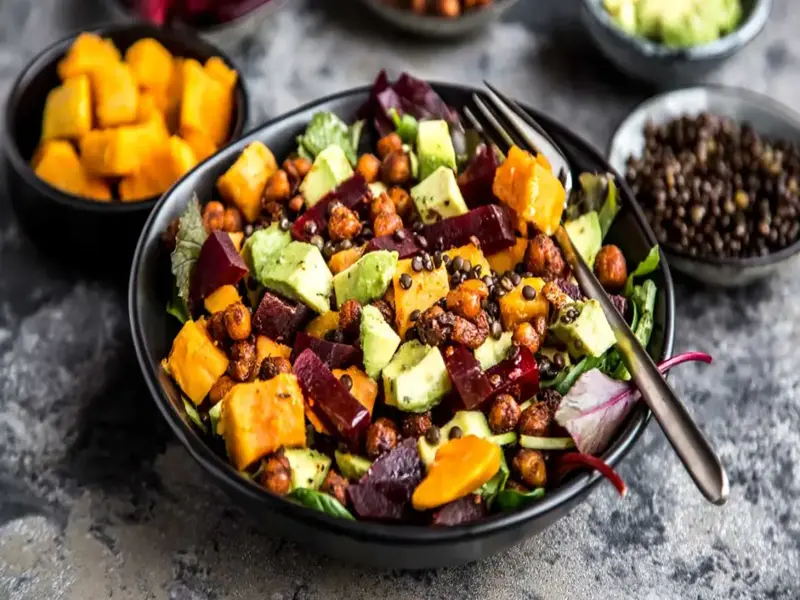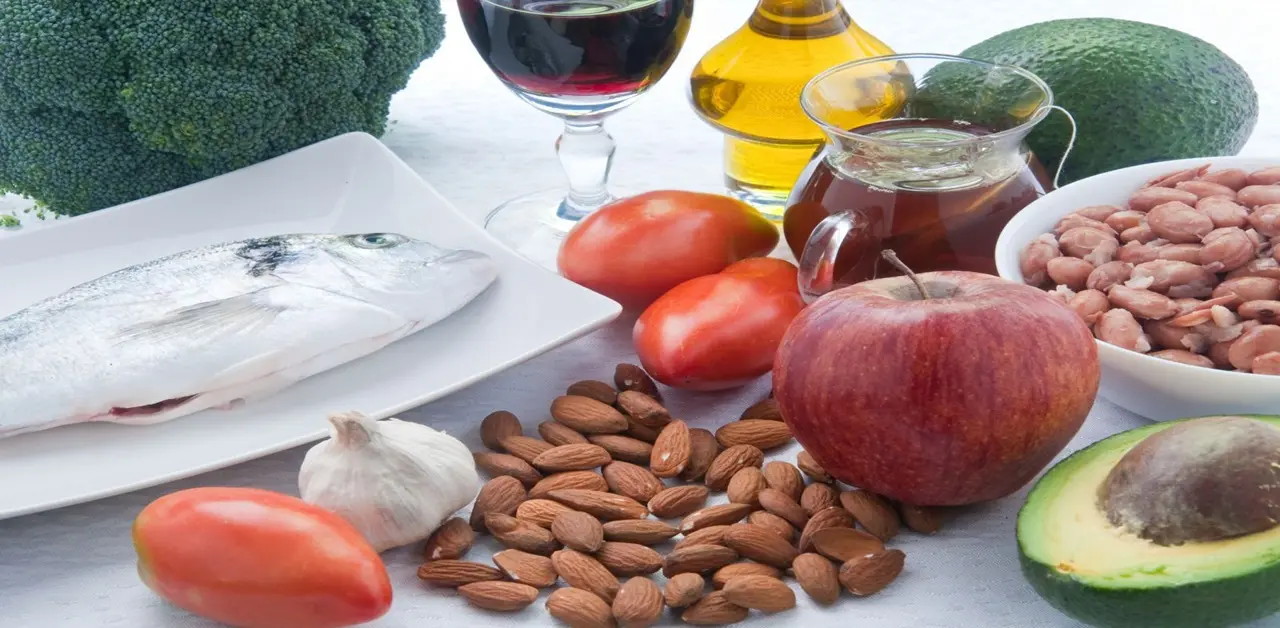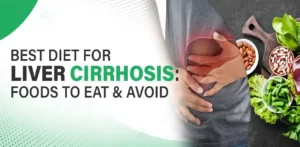Contents
Managing high cholesterol, or hyperlipidemia, is crucial for maintaining heart health and preventing cardiovascular diseases. Diet plays a vital role in controlling cholesterol levels. This blog post will provide you with comprehensive nutrition tips, list cholesterol-lowering foods, and offer meal ideas to help you manage your cholesterol effectively.
Understanding Hyperlipidemia
Hyperlipidemia refers to elevated levels of lipids (fats) in the blood, including cholesterol and triglycerides. High cholesterol is a significant risk factor for heart disease and stroke. It is essential to understand the different types of cholesterol:
- Low-Density Lipoprotein (LDL) Cholesterol: Often called “bad” cholesterol, high levels of LDL can lead to plaque buildup in arteries, increasing the risk of heart disease.
- High-Density Lipoprotein (HDL) Cholesterol: Known as “good” cholesterol, HDL helps remove LDL cholesterol from the arteries.
- Triglycerides: Another type of fat in the blood, high levels can also contribute to cardiovascular problems.

Nutrition Tips for Managing High Cholesterol
Adopting a heart-healthy diet is crucial for managing hyperlipidemia. Here are some essential nutrition tips:
1. Increase Fiber Intake
Dietary fiber helps reduce LDL cholesterol levels. Focus on consuming soluble fiber found in oats, barley, beans, lentils, fruits, and vegetables.
2. Choose Healthy Fats
Replace saturated and trans fats with healthier fats:
- Monounsaturated Fats: Found in olive oil, avocados, and nuts.
- Polyunsaturated Fats: Found in fatty fish, flaxseeds, and walnuts.
3. Limit Saturated and Trans Fats
Reduce intake of foods high in saturated fats like red meat, full-fat dairy products, and processed foods containing trans fats.
4. Eat Plant-Based Proteins
Incorporate more plant-based proteins such as beans, lentils, tofu, and tempeh into your diet. These are low in saturated fats and cholesterol.
5. Incorporate Omega-3 Fatty Acids
Omega-3 fatty acids found in fatty fish (salmon, mackerel, sardines), flaxseeds, and chia seeds help lower triglycerides and reduce inflammation.
6. Increase Antioxidant-Rich Foods
Antioxidants found in fruits, vegetables, nuts, and seeds can help prevent the oxidation of LDL cholesterol, reducing plaque buildup in arteries.
7. Reduce Sodium Intake
High sodium levels can increase blood pressure, which is a risk factor for heart disease. Limit processed foods and use herbs and spices for flavoring instead of salt.
8. Stay Hydrated
Drink plenty of water throughout the day to maintain overall health and support bodily functions, including lipid metabolism.

Foods to Lower Cholesterol
Incorporating specific cholesterol-lowering foods into your diet can significantly impact your lipid levels. Here are some foods to focus on:
1. Oats and Barley
Rich in soluble fiber, oats, and barley can help reduce LDL cholesterol.
2. Fatty Fish
Salmon, mackerel, and sardines are high in omega-3 fatty acids, which can lower triglycerides.
3. Nuts
Almonds, walnuts, and pistachios are rich in healthy fats, fiber, and plant sterols that help lower cholesterol.
4. Fruits and Vegetables
Berries, apples, citrus fruits, and leafy greens are high in fiber, antioxidants, and other heart-healthy nutrients.
5. Legumes
Beans, lentils, and chickpeas are excellent sources of plant-based protein and soluble fiber.
6. Olive Oil
A source of monounsaturated fats, olive oil can help reduce LDL cholesterol.
7. Avocados
Rich in monounsaturated fats and fiber, avocados can help lower LDL cholesterol.
8. Whole Grains
Brown rice, quinoa, and whole wheat products provide fiber and nutrients that support heart health.

Meal Ideas for Managing High Cholesterol
Here are some delicious and heart-healthy meal ideas to incorporate into your diet:
Breakfast
Oatmeal with Berries and Nuts
- Ingredients: Rolled oats, mixed berries (blueberries, strawberries, raspberries), a handful of almonds or walnuts, a drizzle of honey (optional).
- Instructions: Cook oats according to package instructions. Top with fresh berries and nuts. Drizzle with honey if desired.
Avocado Toast with Whole Grain Bread
- Ingredients: Whole grain bread, ripe avocado, a sprinkle of salt, pepper, and red pepper flakes, a squeeze of lemon juice.
- Instructions: Toast the bread. Mash the avocado and spread it on the toast. Season with salt, pepper, and red pepper flakes. Finish with a squeeze of lemon juice.
Lunch
Quinoa Salad with Vegetables and Chickpeas
- Ingredients: Cooked quinoa, chopped vegetables (cucumber, cherry tomatoes, bell peppers), canned chickpeas (rinsed and drained), olive oil, lemon juice, salt, pepper.
- Instructions: In a large bowl, combine quinoa, vegetables, and chickpeas. Drizzle with olive oil and lemon juice. Season with salt and pepper. Toss to combine.
Lentil Soup
- Ingredients: Green or brown lentils, chopped onions, carrots, celery, garlic, vegetable broth, canned tomatoes, spinach, olive oil, salt, pepper, thyme.
- Instructions: In a pot, heat olive oil and sauté onions, carrots, celery, and garlic. Add lentils, vegetable broth, and tomatoes. Simmer until lentils are tender. Stir in spinach and cook until wilted. Season with salt, pepper, and thyme.
Dinner
Grilled Salmon with Steamed Vegetables
- Ingredients: Salmon fillets, olive oil, lemon juice, garlic powder, salt, pepper, mixed vegetables (broccoli, carrots, green beans).
- Instructions: Preheat grill. Brush salmon with olive oil, lemon juice, and season with garlic powder, salt, and pepper. Grill salmon until cooked through. Steam vegetables until tender.
Stuffed Bell Peppers
- Ingredients: Bell peppers, cooked brown rice, black beans, corn, diced tomatoes, onions, garlic, cumin, chili powder, shredded cheese (optional).
- Instructions: Preheat oven. Cut tops off bell peppers and remove seeds. In a skillet, sauté onions and garlic. Add black beans, corn, tomatoes, rice, and seasonings. Stuff peppers with the mixture. Top with cheese if desired. Bake until peppers are tender.
Snacks
Greek Yogurt with Fruit
- Ingredients: Greek yogurt, mixed berries, a drizzle of honey.
- Instructions: Top Greek yogurt with fresh berries and a drizzle of honey.
Veggie Sticks with Hummus
- Ingredients: Carrot sticks, celery sticks, cucumber slices, hummus.
- Instructions: Serve fresh veggie sticks with a side of hummus for dipping.
Conclusion
Managing high cholesterol through diet is an effective and natural way to improve heart health and reduce the risk of cardiovascular diseases. By following the nutrition tips, incorporating cholesterol-lowering foods, and enjoying the meal ideas provided, you can take significant steps towards controlling hyperlipidemia.
For those looking to simplify meal planning and ensure they are eating heart-healthy foods, consider using the IntRest platform. With IntRest, you can order personalized healthy meals that cater to your specific dietary needs, including managing high cholesterol, allergies, and other health conditions. Visit the IntRest website today to explore the variety of options available and take control of your health with ease.



